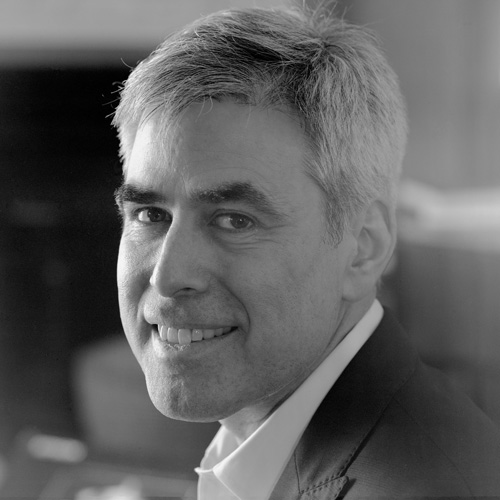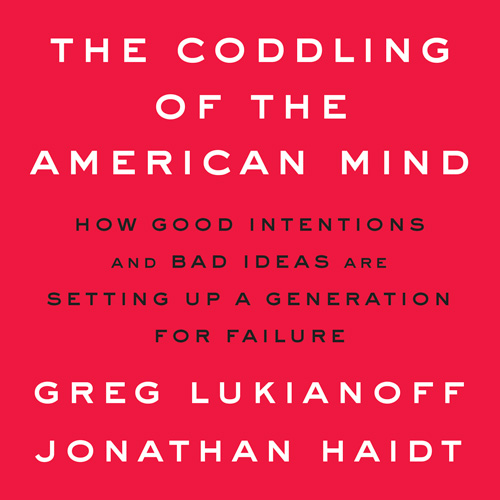General News · December 14, 2018
Three Questions for Jonathan Haidt
On Thursday, Oct. 25, Jonathan Haidt will deliver the first of the Anita and Antonio Gotto Lecture Series at Fifth Avenue Presbyterian Church.
Haidt (pronounced “hite”) is the Thomas Cooley Professor of Ethical Leadership at New York University’s Stern School of Business. He is a social psychologist who studies morality. He believes, he says, “that the study of morality can inform and improve every human institution.”
Even American politics.
In a TED Talks interview during the 2016 Presidential campaign, Haidt warned that “we have an existential threat on our hands. Our left-right divide is by far the most important divide we face. Things won’t get better on their own.”
The hope lies in intentional, meaningful, open-hearted interactions across the dividing lines. And Haidt is convinced that faith communities are the perfect place to do that.
“At a time when Americans are divided sharply, and angrily, by politics and ideology, Jonathan Haidt helps us understand the causes of our deep polarization,” says Senior Pastor Scott Black Johnston. “More importantly, he offers hope that we can come together and heal.”
Haidt has authored or co-authored four books and dozens of articles for academic and mainstream publications. To prepare for his lecture in October, these are the three titles you should know:
- The Happiness Hypothesis: Finding Modern Truth in Ancient Wisdom (Basic Books, 2006) draws connections between contemporary psychology and ancient religious and philosophical teachings.
- The Righteous Mind: Why Good People Are Divided by Politics and Religion (Pantheon Books, 2012) reached #6 on the New York Times best-seller list for non-fiction.
- The Coddling of the American Mind: How Good Intentions and Bad Ideas Are Setting Up a Generation for Failure (Penguin Publishing Group, 2018), written with Greg Lukianoff (president of the Foundation for Individual Rights in Education) and based on an article the two wrote for The Atlantic in September 2015.
Google “Jonathan Haidt” and you’ll find his complete bibliography, along with more media interviews than you can count, and multiple websites devoted to his ideas and research interests.
Because a conversation with Haidt could easily become a book in itself, we’ve limited ourselves to just three questions.

Given the working title of your lecture—"The Coddling of the American Mind: How Three Terrible Ideas Are Setting Up a Generation for Failure, and How Ancient Wisdom Can Lead to a Brighter Future"—it sounds like you will be drawing not just on your newest b
Yes! The three books form a trilogy. The Happiness Hypothesis presents and analyzes what I consider to be the 10 greatest psychological ideas of all time, which have been discovered by several of the world’s civilizations and are rooted in ancient wisdom. The Righteous Mind develops three of these ideas in detail—the divided self, the faults of others, and divinity with or without God—and uses them to explain why people are so easily divided by politics and religion, and so willing to believe terrible things about their fellow citizens. The Coddling of the American Mind analyzes what will happen if parents, teachers and universities continue to teach children to believe three great untruths, or terrible ideas: “What doesn’t kill you makes you weaker.” “Always trust your feelings.” And, “Life is a battle between good people and evil people.” As my co-author, Greg Lukianoff, and I wrote in The Atlantic, “Rather than trying to protect students from words and ideas that they will inevitably encounter, colleges should do all they can to equip students to thrive in a world full of words and ideas that they cannot control.”

Religion, religious practices and religious communities are all about ancient wisdom. How can we be part of the "brighter future" your lecture promises?
Discussions between people out in a void, just two people who differ, tend to go badly. Just look at the comments section below any YouTube video. It is far better to have an overarching moral canopy or element of shared identity, ideally a moral identity. Noting that “we are all Americans” or “we are all Christians” is a very good way to start any difficult discussion. And of course, few traditions have moral resources as rich as Christianity, even just the Sermon on the Mount, for preparing people’s minds and hearts for difficult discussions. I think religious congregations are the best places in America for hosting such discussions, and doing the work of reweaving our social and civic life. Jewish congregations are bitterly divided, particularly over Israel and foreign policy questions. I have spoken at my synagogue, Central Synagogue, on these matters. I have also done events with Tim Keller and with Rabbi Jonathan Sacks, and I recently gave a talk at Biola University [a conservative Christian university in Southern California]. I find that speaking about politics and polarization in a religious community is invariably uplifting. People seem truly interested in healing divisions, rather than in sharpening them or in showing off.
Would you tell us something about your own religious background, and how religion, or spirituality, informs your work?
I was raised Jewish, had a bar mitzvah, and decided, about two years after that, that I was an atheist. In my 20s I was one of those hostile atheists. Had the “New Atheism” books come out then, I would have become a New Atheist. But as I studied morality and its origins and cultural evolution, my thinking changed. I came to believe that human beings evolved to be religious. There is, to paraphrase Pascal, a “God-shaped hole” in each human heart. If that’s true, then regardless of how it came about, it matters how that hole gets filled. If you fill it with a community that values service and decency and responsibility and caring for your family and caring for others, then things will go well for those people and for the community and for the country.